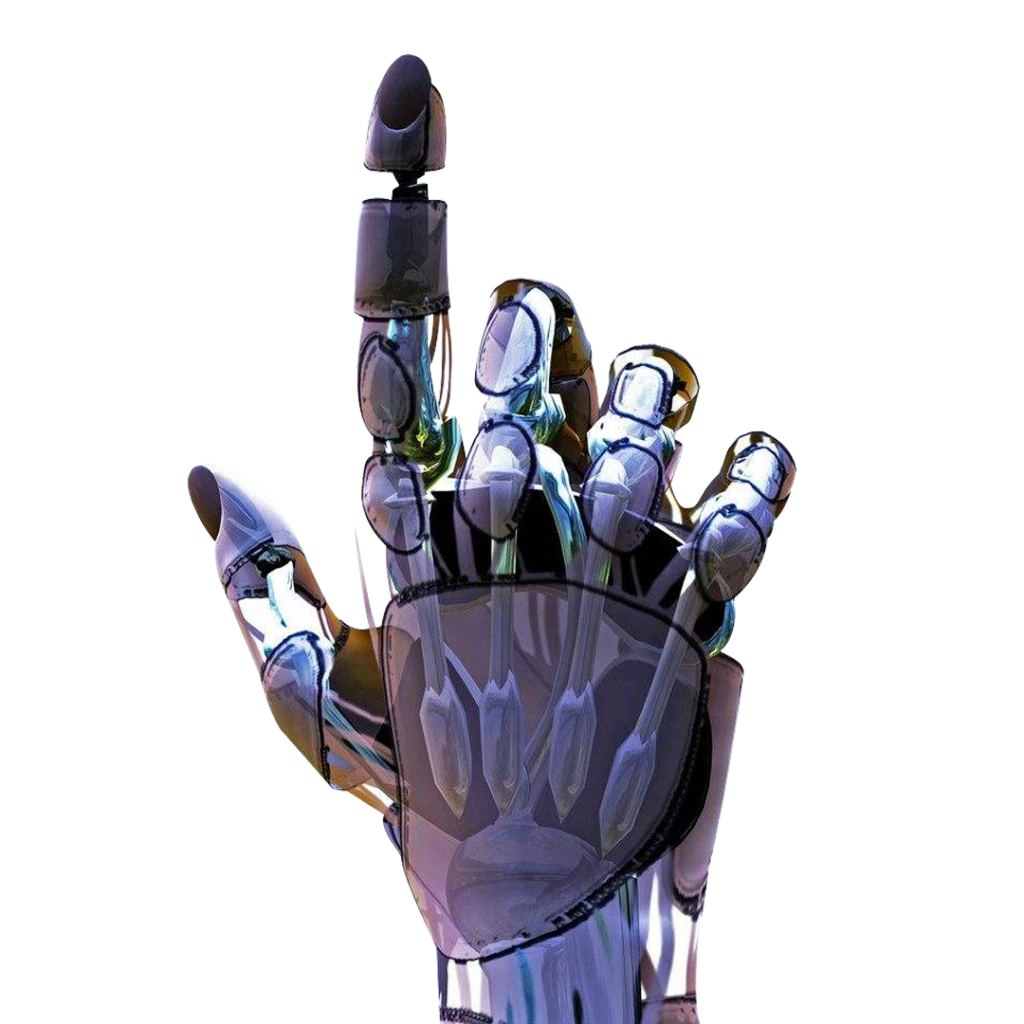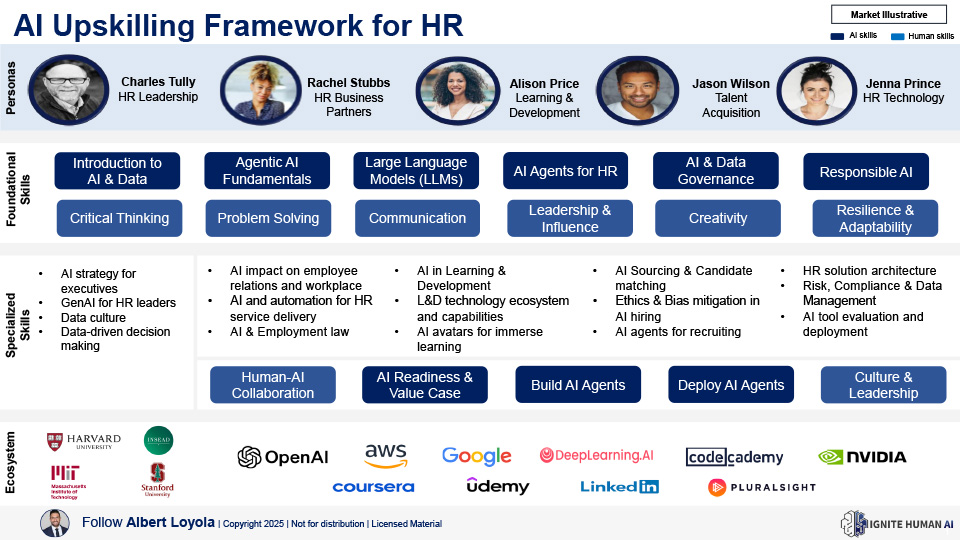
Are OpenAI and Anthropic Entering into the Enterprise Learning Market?
Hello, and welcome back to my Blog! In recent weeks, both organizations have launched new services to democratize AI learning.
Covid19 and the new normal is redefining how organizations are reskilling and deploying talent while keeping employees engaged and productive.
Several industries have been creating new ways to meet customer demands, develop new products and adapt business models.
AI is playing a strategic role in this organizational journey, particularly in the talent and HR space. According to CBS Insights; “annual funding to the HR tech space has surged in recent years — investment doubled from $3.1B to $6.8B between 2017 and 2019”. Moreover, according to Million Insights “The global HR Market size is projected to touch USD 38.17 billion by the end of 2027 fueled by AI, Machine learning and big data analytics, Internet of Things.”
These market insights set the stage to speak about the AI startup landscape in HR. According to Tracxn,“there are 24,531 startups globally and 8,161 in United States only.” What is the message? Intelligent solutions are evolving and reinventing its value proposition moving towards the end to end talent lifecycle.
I predict that in the next 2-3 years we will see humanoids working alongside humans to pivot the way organizations attract, develop, engage and retain talent.
AI in HR Market Evolution
Let me give you a quick overview about the AI market ecosystem in HR. When I started analyzing the marketing 6 years ago, we saw an entire revolution of chatbots in HR. Many solutions starting offering chatbots to streamline communications, screen and source candidates. There was confusion whether these chatbots were using RPA or AI. However, organizations were curious to give it a try to streamline recruiting activities, create efficiencies and reduce cost. As technology evolved, these chatbots became extremely smart as result of the interaction with candidates proving that AI can create efficiencies and reduce cost and most importantly, find the right talent for the right jobs.
Overtime, the talent acquisition market became extremely saturated and fragmented. We saw a variety of chatbots with different capabilities, candidate matching, resume parsing, interview scheduling, proctor interviewing and a set of different approaches for talent assessment solutions from video interviewing – analyzing facial movements, and tone of voice – to technical and behavioral assessments. AI was on the rise and a growing demand to bring intelligent solutions in the workplace and employee experience with well-being technologies, personalize learning, workforce agility, internal mobility and employee sentiment capabilities.
Since 2018 we saw a big switch in the market. HCM players and AI in HR startups realized that there were opportunities to address organizations pain points from the end-to-end talent lifecycle view. Covid accelerated this trend and we saw the rise of LXP (learning experience platforms), performance management, employee engagement, and talent marketplace solutions using artificial intelligence to create personalize learning recommendations, re-skill employees, measure engagement and math people to opportunities.
M&A strategy was set in place for sustainable growth, market positioning, and branding to target smaller AI startups to provide solutions across talent and HR. See below some examples of recent integrations and/or acquisitions:
And the list goes on. What is the message? Cognitive technologies in talent acquisition start to converge to leverage candidate data and tools to develop an end-to-end recruiting solution to make predictions, recommendations and provide insights to executives in the recruiting space.
Where the market is going?
Every time I have the chance to interact with HR executives, AI vendors and media players the first question I get asked is- Albert where the market is going?. First off, before where I address that question, let’s take one step back and talk about what is happening now in the Covid-19 era.
Currently I see many vendors integrating tools in recruiting, competing in the re-skilling space and moving to the talent marketplace (this is a topic I will dive in a different article). The talent marketplace segment is growing exponentially, and many vendors are coming from different angles. We also see market consolidation in the talent acquisition space. What is the message? Big disruption ahead with new investors and VCs injecting capital to extend AI capabilities in the talent and HR market. See below some examples in 2020:
I would say in the next 2 years, there are 4 areas where we will see an exponential growth
What organizations are looking for?
Depending of the level of technology maturity and organizational capabilities, organizations are learning about the value add brought by AI and start experimenting to move from pilot to scale. In order to scale, organizations need to have a clear AI strategy, governance, structure and plan for adoption and re-skill the workforce.
If we bring this to talent and HR, we see a lot of new technologies changing the way organizations attract, hire, engage, retain and develop talent. There are 3 aspects where clients are looking for advice:
The great news is that organizations are excited with the fact that artificial intelligence can learn and predict overtime to provide guidance and recommendation to employees, managers and leadership. Especially now with in the middle of the pandemic and new normal, organizations are deploying intelligent solutions in the workplace to monitor performance, wellbeing and enhance digital experiences.
More to come! Stay tune
Note: All views expressed on this article do not represent the opinions of any entity whatsoever with which I have been, am now, or will be affiliated . My opinions are my own.
Share it with your network:

Albert brings global market research experience to help executives harness intelligent technologies, reinvent HR, re-skilling and employee experience across NAR, APAC, LATAM and EMEA regions.

Hello, and welcome back to my Blog! In recent weeks, both organizations have launched new services to democratize AI learning.
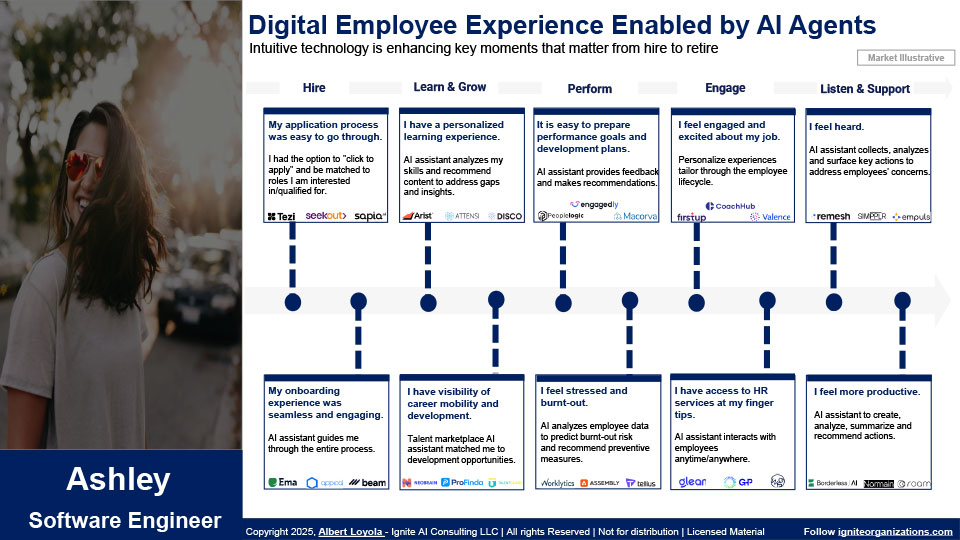
Hello, and welcome back to my Blog! AI agents are rapidly becoming the new user interface for the employee experience.
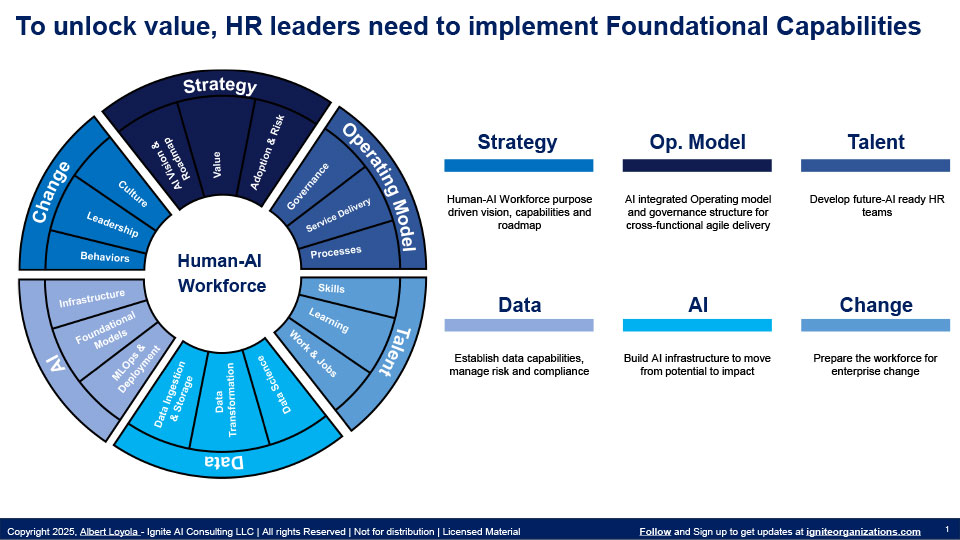
Hello, and welcome back to my Blog! AI innovation is accelerating the path of how employees and the new
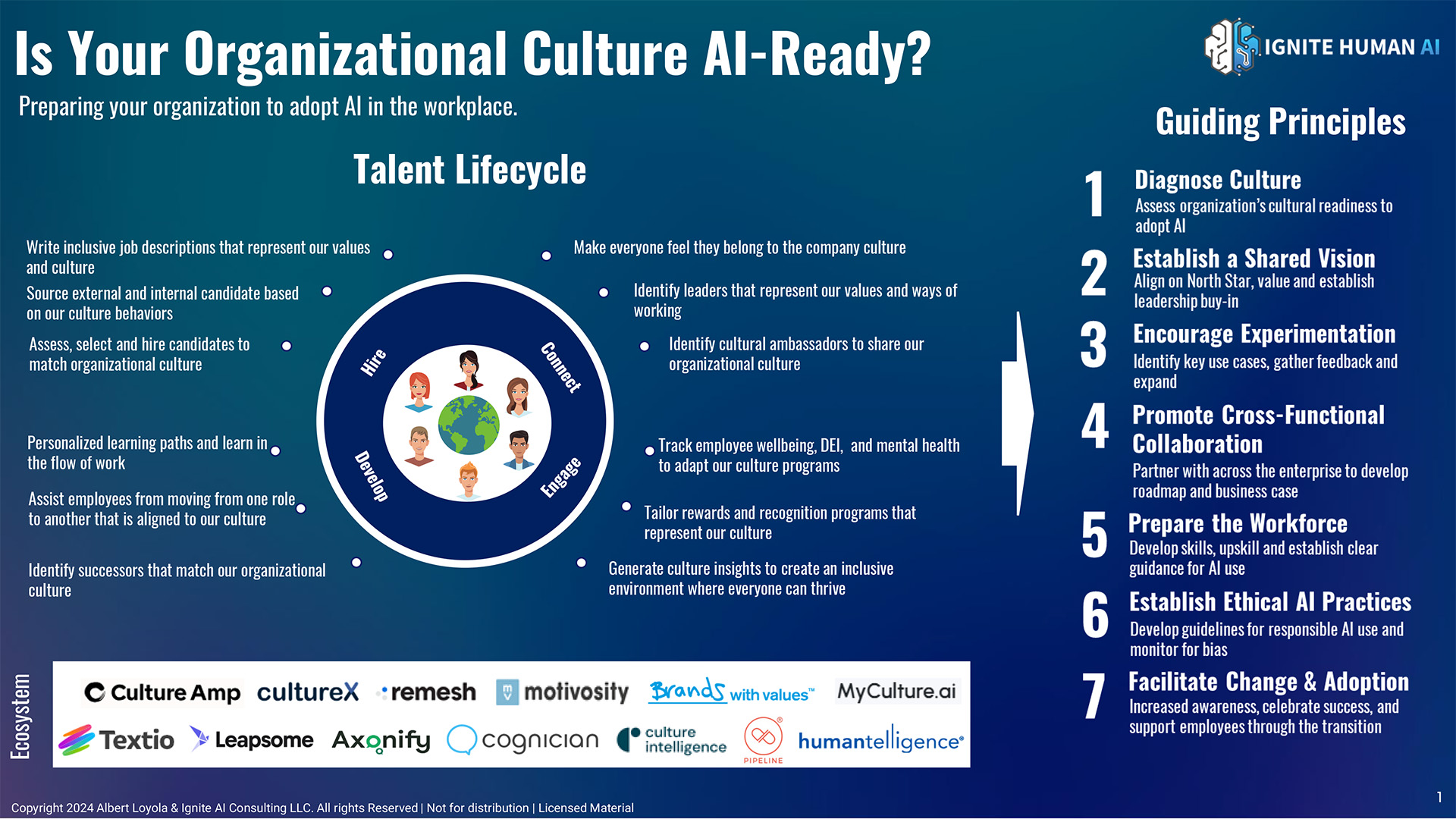
Hello, and welcome back to my Blog! More than ever, the sense of belonging, skill development, role modeling and aligning
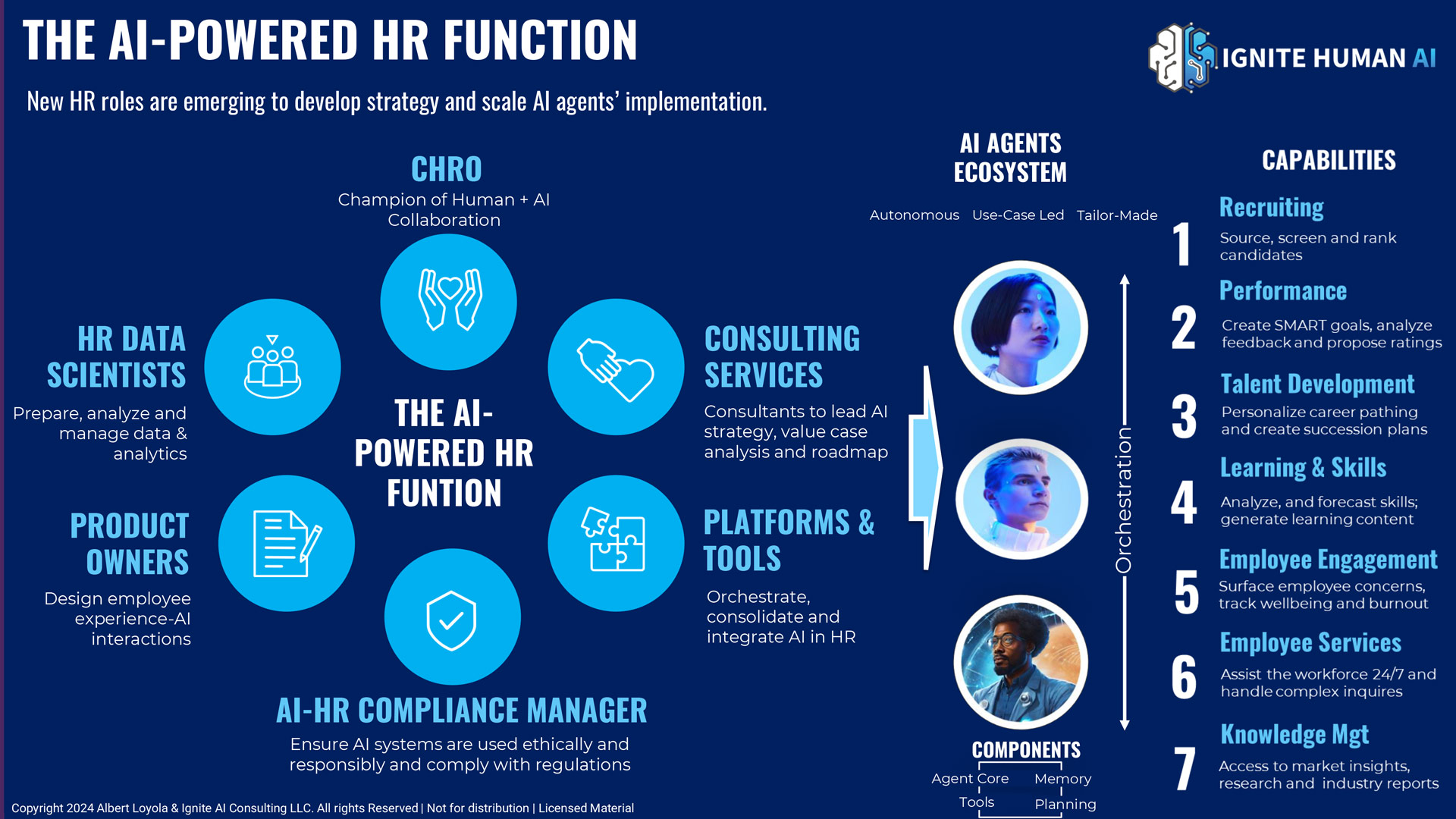
Hello, and welcome back to my Blog! A new human-machine collaboration is shaping the future of human capital and HR.
Subscribe
